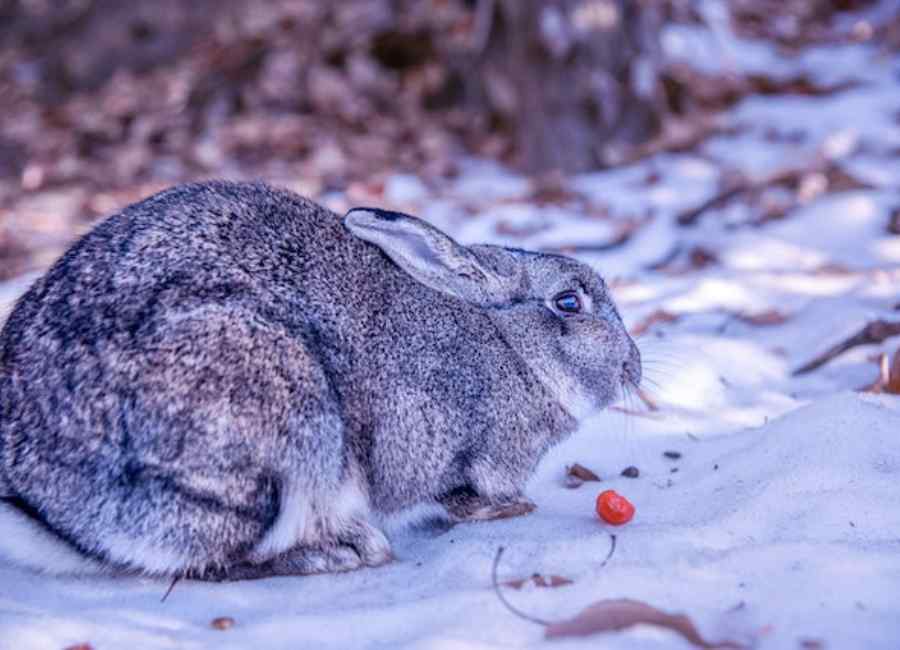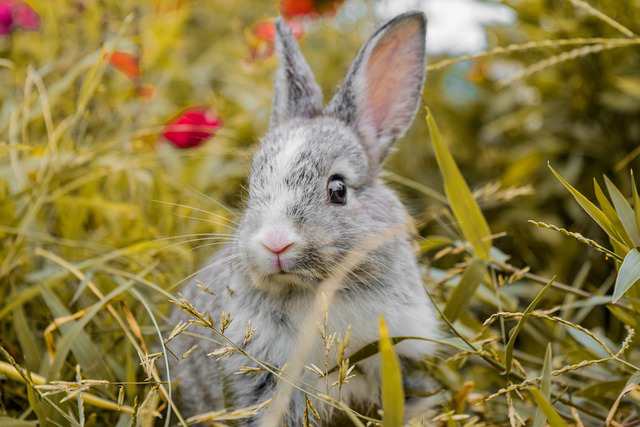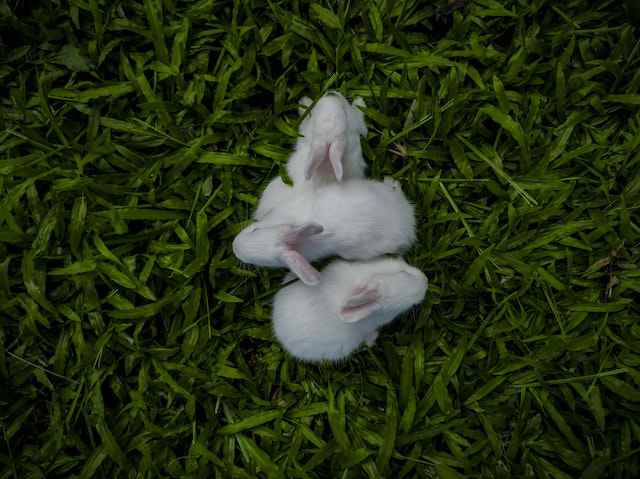10 Common Signs Your Rabbit Is In Labour

Hey there, fellow rabbit lovers! If you’re a proud bunny parent, you know how important it is to be attentive to your fluffy friend’s needs, especially during those precious moments of bringing new life into the world.
In this blog post, we’re going to dive into the exciting world of rabbit labour, sharing the top signs to look out for that indicate your bunny is about to become a mama.
Signs Your Rabbit Is In Labour
The following are some of the most common signs your rabbit is in labour:
1. Restlessness
Restlessness is often an early sign of labour in rabbits. Much like expectant human mothers, rabbits become more fidgety and unsettled as their bodies prepare for the birthing process.
This restlessness is a result of hormonal changes and the physical discomfort associated with impending labour. You might observe your rabbit pacing, rearranging her bedding, and frequently changing positions in search of comfort.
2. Heavy Breathing
The heavy breathing observed in a rabbit nearing labour is due to a combination of factors. The physical exertion of contractions, coupled with the excitement and anticipation of giving birth, can lead to more rapid and laboured breathing.
This is a normal part of the process and should not be a cause for alarm unless accompanied by other concerning symptoms.
3. Visible Contractions
The rhythmic contractions of the uterus are a universal sign of labour, and rabbits are no exception. These contractions facilitate the movement of the kits through the birth canal.
While these contractions might not be as overtly visible in rabbits as in larger animals, you might notice her abdomen tightening and releasing rhythmically.
4. Nesting Position
As labour draws near, a pregnant rabbit will often assume a distinct nesting position. This involves stretching out her back legs and arranging her body in a way that helps her manage contractions and ease the process of delivering the kits. Observing this posture can give you a clear indication that labour is imminent.
5. Agitated Behaviour

Hormonal fluctuations can influence a rabbit’s behaviour, causing them to become more territorial and even agitated.
This is a natural response to the impending responsibility of protecting and caring for her offspring. It’s essential to give her space and avoid handling her too much during this time.
6. Bloody Discharge
The presence of a small amount of bloody discharge during labor is a normal occurrence. It’s a result of the dilating cervix and the physical effort of delivering the kits.
This discharge is usually bright red and should not be excessive. However, if you notice heavy bleeding or prolonged discharge, it’s essential to seek immediate veterinary attention, as it could indicate complications.
7. Licking Around the Genital Area
When a rabbit is in labor, one sign to look out for is excessive licking around the vaginal area. This behavior is known as “nesting behavior” and is a natural instinct for rabbits preparing to give birth. The rabbit may spend more time grooming herself, paying particular attention to her genital area.
It is important to note that while this behavior can indicate that labor is imminent, it is not the only sign, and other behaviors such as restlessness, digging, and pulling out fur may also be observed.
8. Vaginal Discharge
Vaginal discharge in rabbits can be a sign that the doe (female rabbit) is in labour. This discharge is usually clear and mucous-like. As labour progresses, the discharge may become thicker and tinged with blood.
It is important to monitor the doe closely during this time and provide a quiet and comfortable environment for her to give birth. If there are any concerns or if the discharge appears abnormal, it is best to consult a veterinarian for guidance.
9. Straining
Straining is closely linked to contractions and is another telltale sign of active labor. The rabbit may show visible signs of effort as she works to push the kits through the birth canal.
This can be an intense and physically demanding process, but it’s important for the successful delivery of newborns.
10. Fur Pulling
Fur pulling in rabbits is a common behavior observed during the late stages of pregnancy, signaling that the rabbit is preparing for labour. This instinctual behavior involves the rabbit plucking fur from its own body to create a nest for the impending birth.
The pulled fur is then arranged in a cozy spot where the rabbit will give birth and nurse her kits. This behavior indicates that the rabbit is experiencing the hormonal changes associated with impending labour and is preparing to bring new life into the world.
Stages of Rabbit Labour

Rabbit labour typically consists of four stages: the preparatory stage, the nesting stage, the birthing stage, and the afterbirth stage.
During the preparatory stage, the rabbit may show signs of restlessness and start pulling out fur to create a nest.
In the nesting stage, the rabbit will gather materials and build a nest for the upcoming birth. The birthing stage is when the actual labour begins, and the rabbit will experience contractions and give birth to the kits.
Finally, in the afterbirth stage, the rabbit will clean and care for the newborn kits and consume the placenta.
Rabbit Labor Complications
Rabbit labour complications can arise due to various factors, such as the size and position of the kits, maternal health, and environmental stressors.
One common complication is dystocia, where the kits are too large to pass through the birth canal, resulting in prolonged labour.
Another complication is the occurrence of stillborn or weak kits, which can be caused by gestational problems or inadequate nutrition during pregnancy.
Other labour complications include maternal neglect or aggression towards the kits, which can result in poor survival rates.
Early intervention by a veterinarian is crucial in managing these complications to ensure the health and well-being of both the mother and the kits.
Learn more about identifying a stressed rabbit.
Related Questions
How long does rabbit labour typically last?
Rabbit labour can vary in duration, but it usually lasts between 15 to 30 minutes for each individual kit (baby rabbit) being born. However, the entire birthing process can take several hours, especially if your rabbit has a larger litter. If you’re concerned about the length of time, it’s best to consult a veterinarian.
Is it normal for a rabbit to lose their appetite during labour?
Yes, it is not uncommon for rabbits to experience a decreased appetite during labour. This is because they are focused on the birthing process and may not feel inclined to eat. However, it’s important to monitor your rabbit’s food and water intake and consult a vet if you notice a significant decrease or if it persists after labour.
Should I separate the male rabbit from the female during labour?
It is generally recommended to separate the male rabbit from the female during labour. This is to prevent any potential stress or harm to the female and her newborn kits. Male rabbits may become territorial or attempt to mate again, which could be detrimental to the birthing process.
What should I do if my rabbit is experiencing difficulty during labour?
If you notice that your rabbit is having difficulty during labour, it’s crucial to seek veterinary assistance immediately. Signs of distress can include prolonged pushing without any kits being born, excessive bleeding, or if your rabbit seems to be in pain. A veterinarian can provide the necessary help and ensure the well-being of your rabbit and her kits.
How can I help my rabbit during labour?
While rabbits are generally capable of giving birth without human intervention, there are a few things you can do to support your rabbit during labour. Ensure that she has a quiet and comfortable nesting area, provide plenty of fresh water, and monitor her closely without causing unnecessary stress. It’s important to remember that rabbits are instinctive and may prefer to handle the birthing process on their own.
Learn more about your rabbit not eating.
Conclusion
In conclusion, it’s important to be aware of the signs that your rabbit is in labor to ensure safe and smooth delivery.
From nesting behaviors to changes in appetite, these subtle cues can indicate that your furry friend is preparing to bring new life into the world.
By staying observant and providing a comfortable and stress-free environment, you can support your rabbit during this exciting and miraculous time.
